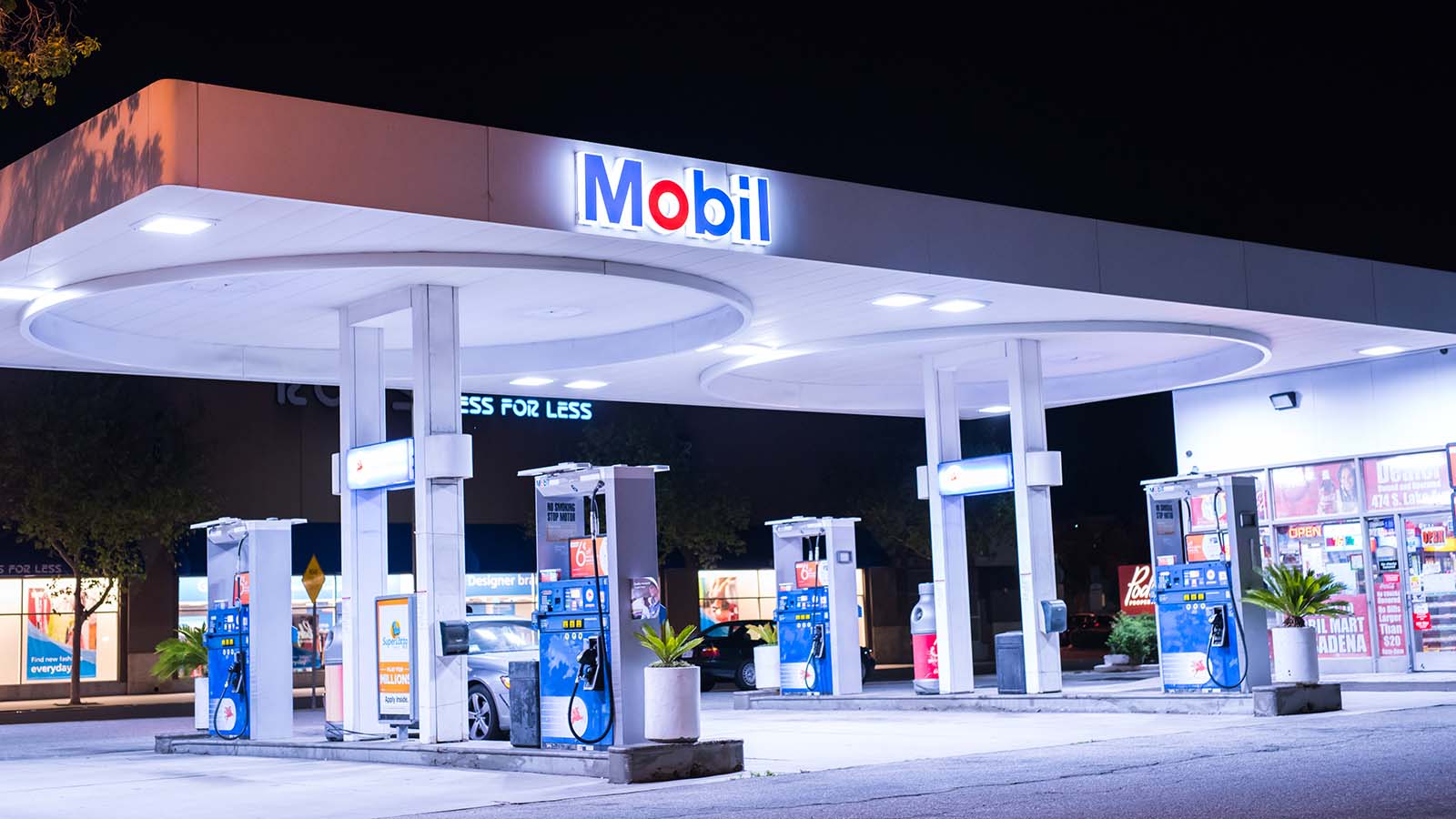Exxon Mobil (NYSE:XOM) stock hasn’t exactly been a barn-burner this year, up only 7%. Much of its recent gains came from the recent spike in oil prices due to the Saudi oil field attacks.

This conflict is good for XOM stock. Most of its earnings come from its upstream operations — selling oil and gas it discovers in the U.S. and abroad. For example, $3.26 billion of Exxon’s $3.13 billion in total earnings this past quarter came from upstream earnings. Its downstream and chemical earnings just covered up corporate level losses.
In effect, higher oil and gas prices will lead to higher Exxon Mobil cash flow. XOM stock will do well if the prices of oil and gas remain high over the next year.
For example, the West Texas Intermediate spot price is still down almost 15% in the past year. This is after the 15% spike on Sept. 16 and subsequent 5% fall the next day. So, in effect, Exxon stock will do well if the tension stays high in the Middle East.
But even if this scenario does not last, Exxon Mobil will continue to produce massive amounts of cash flow. In the first half of 2019, Exxon produced $14.4 billion of what it calls “Cash Flow from Operations and Asset Sales.”
This is more than enough to cover the dividends XOM stock pays. Exxon’s dividends cost only $7.2 billion in the first half. This is 50% of the Cash Flow from Operations and Asset Sales.
What to Expect With XOM Stock
Exxon stock’s 4.7% dividend yield is well covered by cash flow. The dividend also acts as a huge buffer for XOM stock on the downside. The market cannot keep a stock like XOM down when investors know its large dividend will not be cut.
Moreover, the investments Exxon has made in oil and gas ventures will continue to produce massive cash flow. That will allow Exxon to raise the dividend in the future. For example, it recently increased its quarterly dividend from 82 cents per share to 87 cents this year, a 6% increase. In the past five years, Exxon’s dividend per share has grown at a rate of 5.6% annually.
But what about the upside for XOM stock?
Upside Oil Volatility
The U.S. still needs to import oil from outside its borders despite the increase in internal production in the past few years. Most of its imports come from Canada and Saudi Arabia.
CNBC reported recently that the Saudi strike took out just 5% of world production, although its production fell 50%. It pointed out a Goldman Sachs report that if the outage lasted more than six weeks the price would rise significantly. The same would happen if there is a military escalation as a result – oil prices would go much higher.
As you might suspect, this would be mostly good for Exxon stock, as most of its earnings come from upstream operations. Higher oil prices would result in higher cash flow to Exxon.
Exxon Mobil does not have any upstream oil and gas production in Saudi Arabia, according to its latest 10-K annual report. However, Exxon does have one downstream operation in Saudi Arabia. This represents just 200 of its global 4,724 KBD (thousands of barrels per day) in oil and gas production. Exxon also two chemical plants in Saudi Arabia. These are no more than about 35% of its total chemical production. Therefore if the conflict widens militarily, Exxon’s would oil and gas production would not be crippled.
Bottom Line on Exxon Mobil Stock
Exxon stock will benefit over the long term if oil and gas prices rise or supplies get caught up in a conflict. The dividend looks to be not only safe but will likely increase 5% to 6% annually. Exxon Mobil’s cash flow more than covers its dividend expenses.
Investors should look at Exxon stock as a safe, high-dividend-yield play in the energy sector. It could benefit greatly from an elevated oil and gas price rise over the next year.
As of this writing, Mark Hake, CFA does not hold a position in any of the aforementioned securities. Mark Hake runs the Total Yield Value Guide which you can review here. The Guide focuses on high total yield value stocks and was launched on August 30. Subscribers during September receive a 20% discount, plus a two-week free trial.
